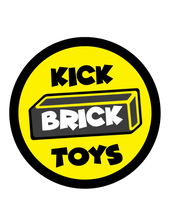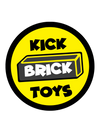The top 7 benefits of play for kids
Play is something that kids have done for centuries and beyond. It is at the centre of their development. But it has been eroded somewhat over the last decade or so with the advent of the tablet. Sitting a child down in front of a tablet might seem like a good way to develop their skills, but it doesn’t achieve what traditional play can. Here is our guide to the top 7 benefits of play for kids –
1 – Interaction with others
Nothing beats learning how to play well with others. It is a skill that children will take with them for the rest of their life. It is great for emotional development and understanding the needs of others as they move through life.
2 – Starting an active lifestyle
With the potential for disease from inactivity looming large over much of the adult population, the best time to establish an active lifestyle is in childhood. Kids learning that there is a big world out there to explore gets them on the right track with this.
3 – It’s a whole lot of fun
This must be a huge reason for kids to get off the tablet and get out there to play. Having fun is an integral part of life. And playing is more fun than kids first imagine. They get to move around, interact with others and pick up new skills. Large construction toys such as KICKBrick can make play extra fun . The stability of the building bricks enables the possibility to create very high towers which then allows kids to do what they do best… knock it over 😊 (but without any damage)
4 – Dexterity skills
From an early age, kids should get used to handling as many items as possible. It is here where the brain stores information about what these items feel like – and what they do. Knowing when something is heavy, hot or spiky helps children to make better-informed decisions for the future.
5 – It allows the brain to process data
As kids get older, they have so much more to learn. Learning how to speak, potty training and going from milk to solid foods are all processes that their brain needs to adapt to. And play helps them to do just that. They practice their new skills in a safe environment and get better at it.
6 – Better behaviour
As kids grow up and go from pre-school to education, play is still an important part of their daily routine. It has been shown that children perform and behave better with time out to play. As we get older and start to work for a living, we sometimes forget this. Play really helps kids to behave.
7 – It builds the imagination
Making a fort out of cardboard boxes or pretending their bed is a racing car feels like a cute thing any kid does. But this is all part of developing their imagination. Playing is all about the make-believe, which helps kids to explore the world and develop their mind.

